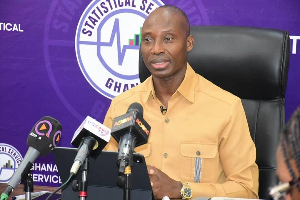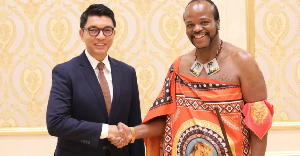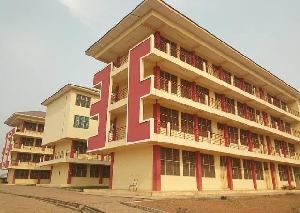General News of Wednesday, 24 June 2020
Source: GNA
Ghana makes progress in effort to reduce gender inequalities
The Ministry of Gender, Children and Social Protection says Ghana has made progress in reducing gender inequalities under the Beijing Declaration and Platform for Action.
Dr Afisah Zakaria, the Chief Director of the Gender Ministry, said since the adoption of the Beijing Platform for Action, there has been significant progress towards gender equality and women’s empowerment in the country.
Dr Zakaria said this at a dissemination workshop on Ghana’s Beijing 25 report.
The Beijing Declaration and Platform for Action is an agenda for women’s empowerment aimed at removing all obstacles to the active participation of women in all spheres of public and private life.
It also seeks to ensure that women have full and equal share in economic, social, cultural and political decision-making in alignment with the Sustainable Development Goals (SDGs).
She said, “The achievements in the period 2014-2019 under review have been categorised under four major themes: gender equality and women empowerment; mainstreaming gender into socio-economic development; development of laws; and establishment of Gender Advisory Board”.
Dr Zakaria said government in 2015 launched the National Gender Policy to guide the gender agenda, the development Ghana National Action Plan 2018-2022 (GHANAP II) on the UN Resolution 1325 on Women Peace and Security.
It also includes building capacity of Gender Desk officers from Ministries, Departments and Agencies (MDAs) as well as planning officers from Metropolitan, Municipal and District Assemblies (MMDAs), awareness creation on fistula, training female head potters (Kayayei) in livelihood and pre-employment skills.
Campaign against Female Genital Mutilation, the Girlz Girlz TV initiative and the launch of the HeForShe Campaign, she said.
The Chief Director said structural inequalities still persists preventing the full achievement of women’s rights and gender equality.
“It my hope that, the deliberations will be successful and yield fruitful knowledge across board in updating the Beijing 25 report for its final compilation and printing,” she said.
The workshop provided a platform to assess the country’s performance, the challenges and gaps existing in the implementation of the 12 critical areas of the Beijing Declaration for Action as outlined in the report.
The 12 critical areas include: women and poverty, women and girls education, women and health, violence against women, women and armed conflict as well as women and the economy.
The rest are women in power and decision-making, institutional mechanisms for the advancement of women, human rights of women, women and the media, women and the environment, and the girl child.
This would enable the Ministry strategize on the way forward 25 years on after the Beijing declaration to achieve the desired results.
Ms Agnes Ntibanyurwa, the UNFPA Deputy Country Representative, said it is imperative to break the cycles, connect movements and adopt a multifaceted approach in ensuring that the recommendations slated in the report were implemented for a more sustained result.
“We hope that the interventions in addressing the gaps and challenges will be gender sensitive in the context of the COVID-19 pandemic,” she said.
Ms Ntibanyurwa highlighting the mandate of the UNFPA pledged their continuous support to the Gender Ministry and partners to achieve gender equality for all.
Reverend Dr Comfort Asare, the Acting Director Department of Gender, said this year more programmes have been outlined to help achieve the Beijing declaration.
“This year more boys and girls will be mentored and male clubs would be established to have strong male-based support,” she said.












